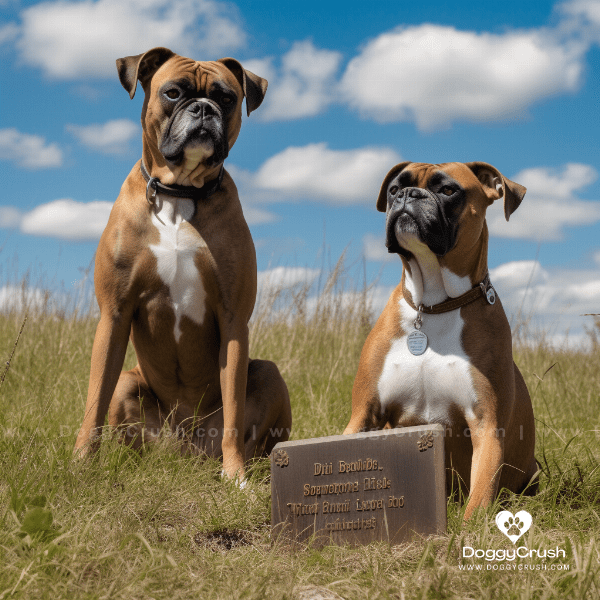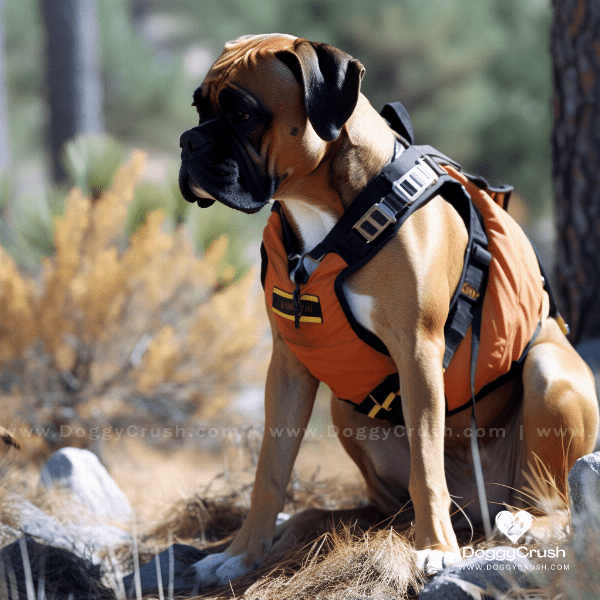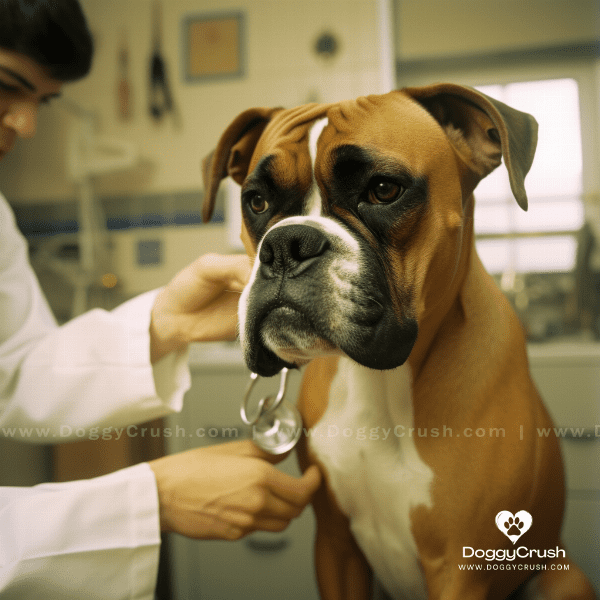Table of Contents
- Origins and History of Boxer Dogs
- Physical Characteristics and Appearance
- Temperament and Personality Traits
- Boxer Dogs as Family Pets
- Boxer Dogs as Working Dogs
- Health Concerns and Common Issues
- Training and Exercise Needs
- Nutrition and Diet Requirements
- Grooming and Care for Boxer Dogs
- Boxer Dog Breeding and Responsible Ownership
Origins and History of Boxer Dogs
Boxer dogs have a rich history that dates back to 19th century Germany. These dogs were originally bred for bull-baiting and as guard dogs. The breed is believed to be a mix of several different breeds, including the Bulldog and the now extinct Bullenbeisser.
Early Development of the Boxer Breed
In the late 1800s, breeders in Germany began to develop the Boxer as a separate breed. The first Boxer club was formed in Munich in 1895, and the breed was officially recognized by the American Kennel Club in 1904.
Boxer Dogs in World War I
During World War I, Boxer dogs were used as messenger dogs and as pack animals. They were highly valued for their loyalty and intelligence, and their ability to perform under pressure.
Boxer Dogs in Popular Culture
Boxer dogs have also made their mark in popular culture. The most famous Boxer dog is probably “Chance,” the lovable, slobbering dog in the movie “Homeward Bound.” Boxers have also been featured in television shows and commercials.
Boxer Dogs Today
Today, Boxer dogs are still used as working dogs, but they are also popular as family pets. They are known for their loyalty, playfulness, and affectionate nature. Boxers are also highly intelligent and respond well to training.
Overall, the Boxer dog is a breed with a fascinating history and a bright future. Whether as a working dog or a family pet, Boxers are sure to capture your heart with their unique personalities and devotion to their owners.

Physical Characteristics and Appearance
Boxer dogs are known for their distinctive appearance and physical characteristics. They are a medium-sized breed, typically weighing between 50 and 70 pounds and standing 21 to 25 inches tall at the shoulder.
Body Structure
Boxers have a muscular and athletic build, with a broad chest and powerful legs. They have a short, smooth coat that comes in a variety of colors, including fawn, brindle, and white.
Head and Face
One of the most recognizable features of the Boxer dog is its head and face. Boxers have a square-shaped head with a strong jaw and powerful bite. They have a short muzzle and wrinkled forehead that gives them a distinctive expression.
Ears and Tail
Boxers have high-set ears that are usually cropped, though this practice is becoming less common. They also have a docked tail, which means that the tail is surgically removed shortly after birth.
Gait and Movement
Boxers are known for their smooth, fluid gait and powerful movement. They are able to move quickly and gracefully, with a stride that covers a lot of ground.
Health Considerations
As with any breed, Boxer dogs can be prone to certain health issues. Some of the most common health concerns for Boxers include hip dysplasia, heart problems, and cancer. It is important to work with a reputable breeder and to provide regular veterinary care to ensure the health and well-being of your Boxer.
Overall, the physical characteristics and appearance of the Boxer dog are what make this breed so unique and beloved. From their muscular build to their distinctive head and face, Boxers are a breed that is sure to turn heads and capture hearts.

Temperament and Personality Traits
Boxer dogs are known for their playful, loyal, and affectionate nature. They are a breed that thrives on human companionship and loves to be around their owners.
Playful and Energetic
Boxers are known for their playful and energetic personalities. They love to play, run, and jump, and are always up for a game of fetch or tug-of-war. Their high energy level makes them great exercise partners and playmates for children.
Intelligent and Trainable
Boxers are highly intelligent and respond well to training. They are a breed that is eager to please their owners and loves to learn new things. Boxers are often used as service dogs and therapy dogs due to their intelligence and trainability.
Socialization and Training
It is important to socialize and train your Boxer from a young age. Boxers can be prone to stubbornness and may require firm and consistent training. Early socialization can help prevent behavioral issues and ensure that your Boxer is well-behaved and social with other dogs and people.
Overall, the temperament and personality traits of the Boxer dog make them a beloved breed that is known for their playful, loyal, and affectionate nature. With proper socialization and training, Boxers make excellent family pets and companions.

Boxer Dogs as Family Pets
Boxer dogs make excellent family pets and are a popular breed choice for families with children. Their playful and affectionate nature, as well as their loyalty and protective instincts, make them a great addition to any family.
Playful and Active
Boxers are known for their playful and active personalities, which make them great playmates for children. They love to play and are always up for a game of fetch or tag. Boxers also have a high energy level and require regular exercise, which is great for families who enjoy being active.
Training and Socialization
As with any breed, Boxers require proper training and socialization to be well-behaved family pets. Boxers can be prone to stubbornness, so early and consistent training is important. Socialization can help prevent behavioral issues and ensure that your Boxer is comfortable and friendly around other dogs and people.
.

Boxer Dogs as Working Dogs
Boxer dogs were originally bred as working dogs, and they are still used in a variety of working roles today. Their intelligence, loyalty, and physical abilities make them well-suited for a range of tasks.
Police and Military Work
Boxers are often used in police and military work, where their loyalty and protective instincts make them valuable assets. They can be trained to perform a variety of tasks, including search and rescue, drug detection, and tracking.
Service and Therapy Dogs
Boxers are also used as service and therapy dogs, where their intelligence and trainability make them a great choice. They can be trained to assist people with disabilities, including mobility and hearing impairments. Boxers are also used in therapy settings, where their affectionate and loving nature can provide comfort and support to those in need.
Agility and Sports
Boxers are highly athletic and excel in a range of sports, including agility and obedience competitions. Their high energy level and love of play make them well-suited for these types of activities.
Hunting and Herding
While Boxers are not typically used for hunting or herding, they can be trained for these roles. Their intelligence and physical abilities make them capable of performing a range of tasks, including retrieving and tracking.
Working Boxers and Pet Boxers
It is important to note that working Boxers may have different temperaments and energy levels than pet Boxers. Working Boxers require a higher level of training and exercise to maintain their physical and mental well-being. Pet Boxers can still be highly active and playful, but may not require the same level of training and exercise as their working counterparts.
Overall, Boxer dogs are a versatile breed that can excel in a range of working roles. From police and military work to service and therapy roles, Boxers are highly intelligent and adaptable. With proper training and exercise, Boxers can be happy and fulfilled in a variety of working roles.

Health Concerns and Common Issues
While Boxer dogs are generally a healthy breed, they can be prone to certain health issues. It is important to be aware of these issues and to work with a veterinarian to ensure the health and well-being of your Boxer.
Common Health Issues
One of the most common health issues for Boxers is hip dysplasia, a condition where the hip joint does not develop properly. This can lead to pain and mobility issues, and may require surgery to correct. Boxers are also prone to heart problems, including aortic stenosis and dilated cardiomyopathy. These conditions can lead to heart failure and may require medication or surgery.
Cancer
Boxers are also prone to certain types of cancer, including lymphoma and mast cell tumors. These cancers can be aggressive and may require surgery, chemotherapy, or radiation treatment.
Breathing Problems
Boxers are a brachycephalic breed, which means that they have a short muzzle and flat face. This can lead to breathing problems, including snoring and snorting. Boxers are also prone to a condition called brachycephalic obstructive airway syndrome (BOAS), which can cause breathing difficulties and may require surgery.
Other Health Concerns
Boxers are also prone to a range of other health concerns, including allergies, skin conditions, and digestive issues. It is important to work with a veterinarian to manage these issues and to provide proper care and nutrition to your Boxer.
.

Training and Exercise Needs
Boxer dogs are highly intelligent and respond well to training. They are a breed that requires regular exercise and mental stimulation to stay happy and healthy.
Training
Boxers are a breed that can be prone to stubbornness, so it is important to start training from a young age. Positive reinforcement training methods, such as treats and praise, work well with Boxers. Consistent training can help prevent behavioral issues, such as destructive chewing and excessive barking.
Socialization
Socialization is also important for Boxers. Early socialization can help prevent aggression towards other dogs and people. Boxers should be exposed to a variety of people, animals, and environments from a young age to help them develop into well-adjusted and social adults.
Exercise
Boxers have a high energy level and require regular exercise. This can include daily walks, runs, and playtime in a fenced yard. Boxers also enjoy playing games, such as fetch and tug-of-war, which can provide both physical and mental stimulation.
Mental Stimulation
Boxers are a breed that requires mental stimulation to prevent boredom and destructive behaviors. This can include training sessions, puzzle toys, and interactive games.
Working Boxers
Working Boxers may require a higher level of exercise and mental stimulation than pet Boxers. Working Boxers should be provided with tasks or activities that are appropriate for their job, such as tracking or retrieving.
Overall, Boxer dogs require regular training and exercise to stay happy and healthy. With proper training and socialization, Boxers can be well-behaved and social companions. With plenty of exercise and mental stimulation, Boxers can be active and fulfilled pets or successful working dogs.

Nutrition and Diet Requirements
Boxer dogs require a balanced and nutritious diet to maintain their health and well-being. Proper nutrition can help prevent health issues and ensure that your Boxer lives a long and healthy life.
Feeding Guidelines
Boxers typically require 2-3 cups of high-quality dog food per day, depending on their size and activity level. It is important to choose a dog food that is appropriate for your Boxer’s age, size, and activity level. Boxers are prone to obesity, so it is important to monitor their food intake and provide regular exercise.
Protein and Fat
Boxers require a diet that is high in protein and fat to maintain their muscle mass and energy levels. Look for dog foods that have real meat as the first ingredient, such as chicken, beef, or fish. Avoid dog foods that contain fillers or by-products.
Carbohydrates
Carbohydrates are also an important part of a Boxer’s diet. Look for dog foods that contain high-quality carbohydrates, such as brown rice, sweet potato, or oatmeal. Avoid dog foods that contain high amounts of grains or corn, which can be difficult for Boxers to digest.
Treats
Treats should be given in moderation and should be high-quality and nutritious. Avoid giving your Boxer table scraps or human food, which can be high in calories and fat.
Water
Water is also an important part of a Boxer’s diet. Make sure that your Boxer has access to fresh, clean water at all times.
Health Concerns
Boxers can be prone to certain health issues, such as digestive problems and allergies. It is important to work with a veterinarian to manage any health concerns and to provide proper nutrition and care to your Boxer.
Overall, Boxer dogs require a balanced and nutritious diet to maintain their health and well-being. By providing high-quality dog food and fresh water, and by monitoring their food intake and providing regular exercise, you can help ensure that your Boxer lives a long and healthy life.

Grooming and Care for Boxer Dogs
Boxer dogs are a low-maintenance breed when it comes to grooming, but they still require some basic care to stay healthy and comfortable.
Coat Care
Boxers have a short, smooth coat that is easy to maintain. They do shed, but regular brushing can help reduce shedding and keep their coat shiny and healthy. A rubber brush or grooming mitt can be used to remove loose hair and dirt.
Bathing
Boxers typically do not require frequent bathing, as this can strip their coat of natural oils. A bath every 2-3 months is usually sufficient, unless your Boxer gets particularly dirty or smelly.
Nail Trimming
Regular nail trimming is important for Boxers, as long nails can cause discomfort or even pain. Nails should be trimmed every 4-6 weeks, or as needed. If you are unsure how to trim your Boxer’s nails, ask your veterinarian or a professional groomer for guidance.
Dental Care
Dental care is important for Boxers, as they are prone to dental issues. Brushing your Boxer’s teeth regularly with a dog toothbrush and toothpaste can help prevent tartar buildup and gum disease. Dental chews and toys can also help keep your Boxer’s teeth clean.
Ear Care
Boxers are prone to ear infections, so it is important to keep their ears clean and dry. Use a damp cloth to clean the outer ear and avoid inserting anything into the ear canal.
.

Boxer Dog Breeding and Responsible Ownership
Boxer dogs are a popular breed, and responsible breeding and ownership practices are important to ensure the health and well-being of the breed.
Breeding
Responsible breeding involves selecting dogs that are healthy and have good temperaments. Breeding should only be done by reputable breeders who have the best interests of the breed in mind. This includes health testing for genetic conditions, providing proper care and socialization for puppies, and ensuring that puppies are placed in loving and responsible homes.
Spaying and Neutering
Spaying and neutering can help prevent unwanted litters and can also have health benefits for your Boxer. Spaying and neutering can reduce the risk of certain types of cancer and can also help prevent behavioral issues, such as marking and aggression.
Adoption
Adopting a Boxer from a rescue organization or shelter is a great way to provide a loving home for a dog in need. Adopting a dog can also be a more affordable option than buying a puppy from a breeder.
Conclusion
Overall, responsible breeding and ownership practices are important to ensure the health and well-being of Boxer dogs. By providing proper care and love to your Boxer, and by supporting responsible breeding practices, you can help ensure that this wonderful breed continues to thrive.




